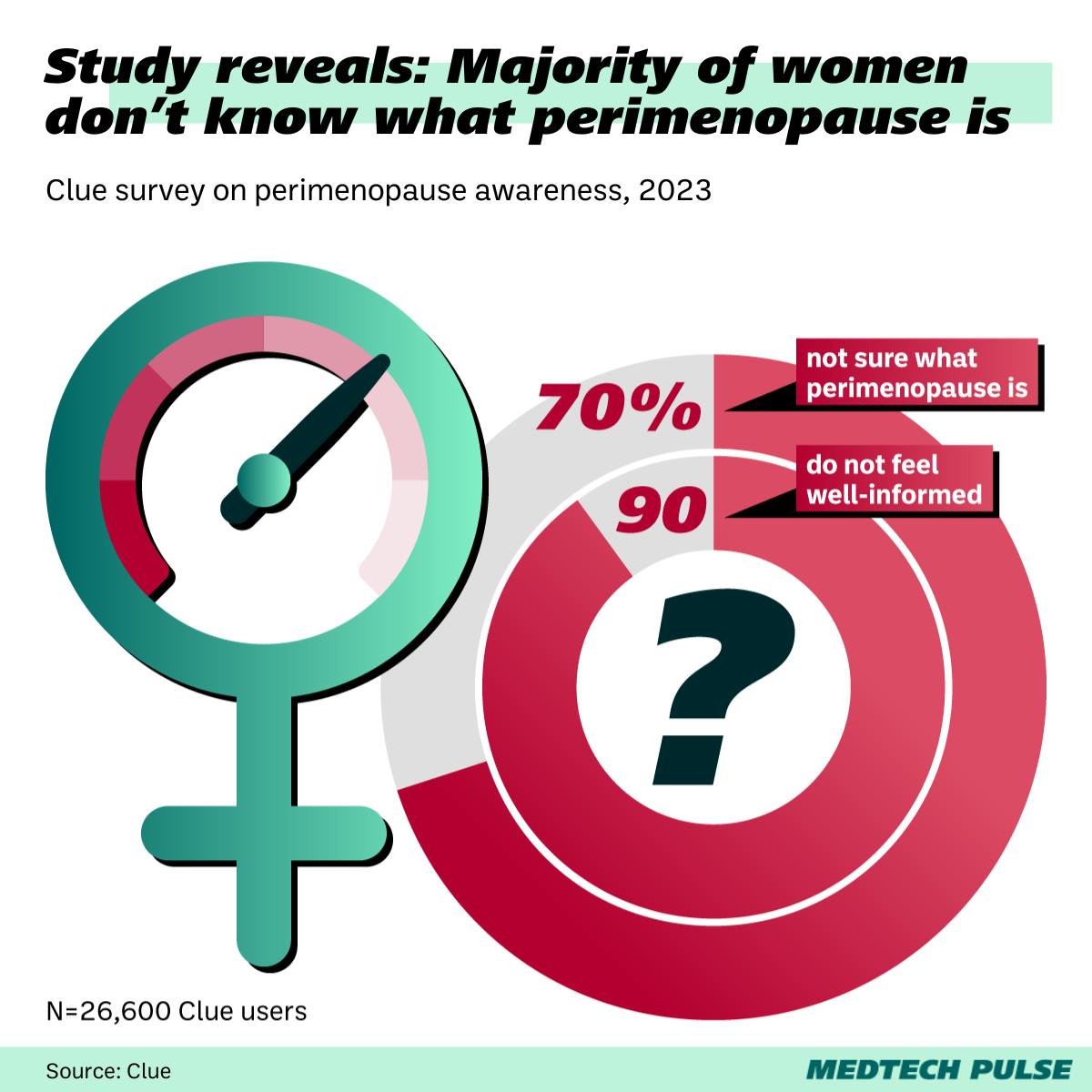Wearables and period trackers team up to study menopause & perimenopause
What do you know about menopause and perimenopause? For many people facing these transitions, the answer is ‘not a lot.’
And while patients know fairly little about menopause, many researchers don’t currently understand much more.
The physiology of menopause and perimenopause has been understudied. But now, leading wearable device company Oura and period tracker startup Clue are teaming up with academic researchers to change that.

Why is there so little research on menopause?
Scientific literature has long excluded women experiencing hormonal fluctuations.
This isn’t limited to women entering menopause, of course. Until the 1980s, women of reproductive age had been excluded from clinical research. Hormonal fluctuations were seen as confounding factors, and the assumption was made that the male body and its functions could be the generalized stand-in for all people. Now, researchers are trying to fill the knowledge gaps we’ve inherited.
As a result, the physiological changes of menopause and perimenopause haven’t been well-explored scientifically—yet.
"There's been little progress in menopause research over many years," said Dr. Monica Christmas, director of the University of Chicago’s menopause program. "Research has tended to focus on medical treatments for vasomotor symptoms like hot flashes and night sweats, when there are many overlooked facets that can help us better understand this dynamic and complex period."
That’s why Oura, Clue, and the University of California, Berkeley are collaborating on a study of menopause and its lesser-known sister condition, perimenopause.
Oura will donate rings to the study participants whose heart rate, skin temperature, heart rate variability, and sleep changes will be monitored using the devices alongside Clue’s cycle tracking data.
Medtech leads the way in destigmatizing and data-gathering
The project’s goal is to better understand and predict what happens to women’s bodies later in life, enabling them to get the care they need and better advocate for themselves during this transition period.
That care couldn’t come soon enough, with this population suffering from being under-informed and under-managed in terms of their symptom control. An estimated 10% of women stop working earlier than necessary due to their menopause symptoms. Plus, around 70% of surveyed women aren’t even aware of the transition period before menopause, perimenopause.
Better counseling, treatment, and self-advocacy all start with better data. We touched on the rising trend of wearables being used in clinical studies in our recent piece on Apple’s AFib feature. Medical devices and digital health tools are expanding the ways we can gather that data—especially when it comes to including under-represented populations in studies.
And as scientists, clinicians, and women themselves better understand menopause and perimenopause, the growing field of menopause-focused medtech startups—like Midi Health and Elektra Health—will be even more effective.